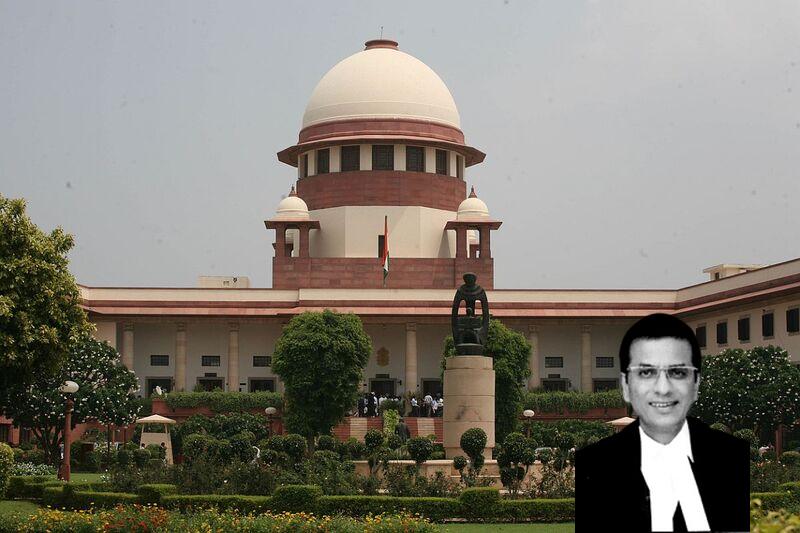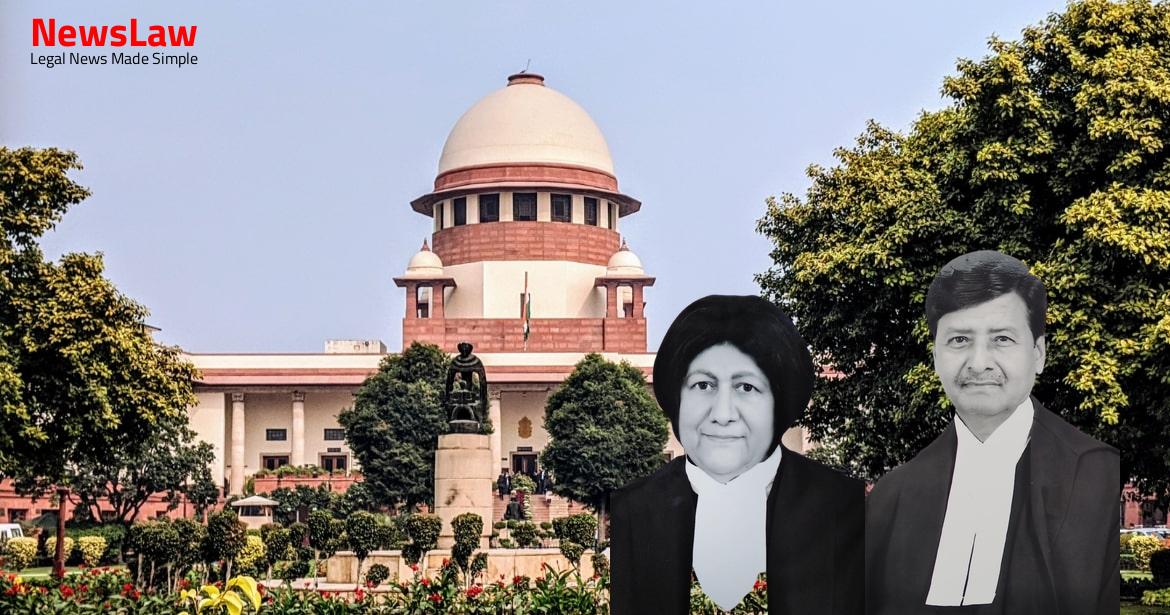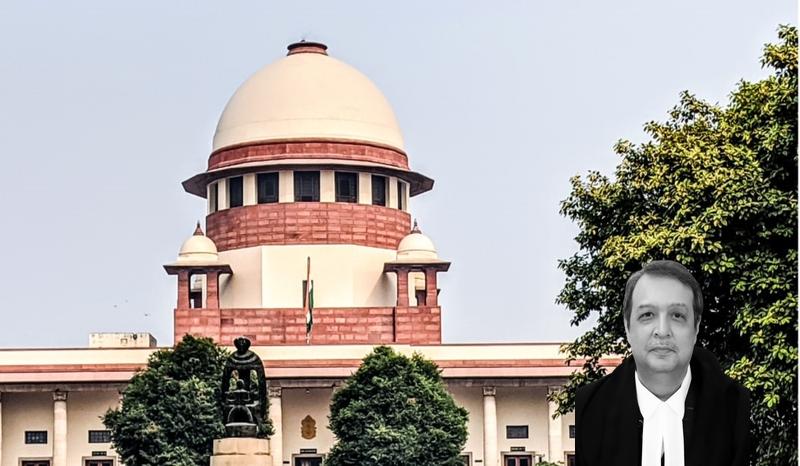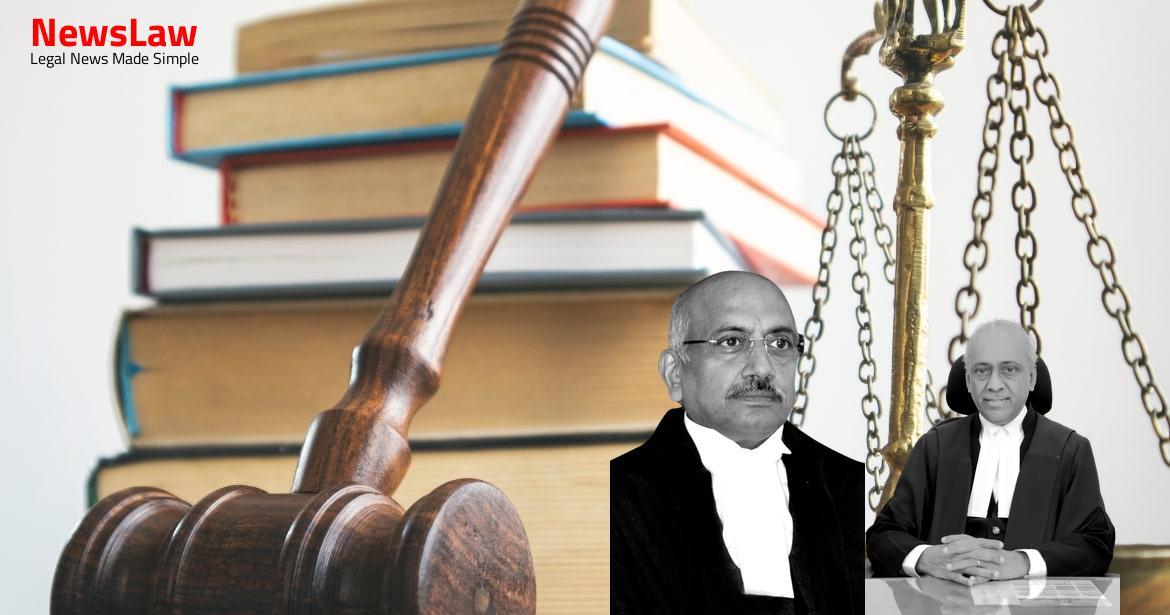Ajay Singh (respondent-accused), along with his wife, is said to have approached the appellant-complainant (Mr. Rajesh Jain, appellant appearing in-person contended that he had lent a sum of Rs. It is only in the year 2017, that the complainant managed to trace the accused-at which point, the accused sought for forgiveness and promised to repay the amounts borrowed along with interest, within three months. On direct confrontation, the accused is said to have issued a post-dated cheque No.163044 (dated 19.10.2017) for a sum of Rs.6,95,204/- towards part repayment of outstanding dues. The complainant had also produced the relevant documentary evidence including the cheque 5 in question, cheque return memo, copy of the bank passbook, demand notice, postal register, statement of accounts of the complainant and cheque returned register. It, then, rightly noted that the onus of rebutting the presumption lay on the accused and said onus was to be discharged by raising a ‘probable defence’ which would create a doubt as to the existence of a legally enforceable debt.
Since he does not possess any valid license/registration under the Punjab Registration of Money Lenders Act, 1938 (Money Lenders Act), he could not have filed a suit for recovery of money advanced as per Section 3 of the Money Lenders Act. (iv) The procedure set out in Section 138 has not been properly followed in that the legal notice has been issued prematurely, even before the complainant had received notice of the cheque return memo. The underlying basis of the findings in the High Court judgment can be summarised thus: 18.1 The presumption under Section 139 was rebutted by putting questions to the appellant in his cross examination and explaining the incriminating circumstances found in the statement recorded under Section 313 of Cr.P.C. The complainant ought to have mentioned the principal amount borrowed and the interest charged thereon in order to arrive at the cheque amount of Rs.6,95,204/-. Rajesh Jain, appearing in-person has contended that there is a serious flaw in the approach of the Courts below while appreciating the evidence on record. Once the presumption operates, the onus rests on the accused to prove the non- existence of debt/liability and the courts could not have doubted the complainant’s case from any point of view. Since the execution of the cheque is, admittedly, not under dispute, the limited question to be considered, is (i) whether the accused can be said to have discharged his ‘evidential burden’, for the courts 13 below to have concluded that the presumption of law supplied by Section 139 had been rebutted?
vs State of Punjab (1976) 4 SCC 158, this Court, on a consideration of multiple authorities, has distilled the principles 14 governing interference by this Court in a criminal appeal by special leave, as follows: (1) that this Court would not interfere with the concurrent finding of fact based on pure appreciation of evidence even if it were to take a different view on the evidence. (3) that the Court would not enter into credibility of the evidence with a view to substitute its own opinion for that of the High Court (4) that the Court would interfere where the High Court has arrived at a finding of fact in disregard of a judicial process, principles of natural justice or a fair hearing or has acted in violation of a mandatory provision of law or procedure resulting in serious prejudice or injustice to the accused. Essentially, in all trials concerning dishonour of cheque, the courts are called upon to consider is whether the ingredients of the offence enumerated in Section 138 of the Act have been met and if so, whether the accused was able to rebut the statutory presumption contemplated by Section 139 of the Act. In Gimpex Private Limited vs Manoj Goel, this Court has unpacked the ingredients forming the basis of the offence under Section 138 of the NI Act in the following structure: 16 (1) The drawing of a cheque by person on do account maintained by him with the banker for the payment of any amount of money to another from that account; (i) The cheque being drawn for the discharge in whole or in part of any debt or other liability; (iii) Presentation of the cheque to the bank arranged to be paid from that account, (iv) The return of the cheque by the drawee bank as unpaid either because the amount of money standing to the credit of that account is insufficient to honour the cheque or that it exceeds the amount (v) A notice by the payee or the holder in due course making a demand for the payment of the amount to the drawer of the cheque within 30 days of the receipt of information from the bank in regard to the return of the cheque; and (vi) The drawer of the cheque failing to make payment of the amount of money to the payee or the holder in due course within 15 days of the receipt of the notice. The following are the acts which are components of the said offence: (1) drawing of the cheque, (2) presentation of the cheque to the bank, (3) returning the cheque unpaid by the drawee bank, (4) giving notice in writing to the drawer of the cheque demanding payment of the cheque amount, (3) failure of the drawer to make payment within 15 days of the receipt of the notice.” (1999) 7 SCC 510 17 28. However, through the introduction of a presumptive device in Section 139 of the NI Act, the Parliament has sought to overcome the general norm as stated in Section 102 of the Evidence Act and has, thereby fixed the onus of proving the same on the accused. On the other hand, the evidential burden may shift from one party to another as the trial progresses according to the balance of evidence given at any particular stage; the burden rests upon the party who would fail if no evidence at all, or no further evidence, as the case may be is adduced by either side (See Halsbury’s Laws of England, 4th Edition para 13).
Sharma Exports, this Court referred to presumption as “devices by use of which courts are enabled and entitled to pronounce on an issue notwithstanding that there is no evidence or insufficient evidence.” Broadly speaking, presumptions are of two kinds, presumptions of fact and of law. The Evidence Act provides for presumptions, which fit within one of three forms:’may presume’ (rebuttable presumptions of fact),’shall presume’ (rebuttable presumption of law) and conclusive presumptions (irrebuttable presumption of law). Section 139 of the Act stipulates that ‘unless the contrary is proved, it shall be presumed, that the holder of the cheque received the cheque, for the discharge of, whole or part of any debt or liability’. As soon as the complainant discharges the burden to prove that the instrument, say a cheque, was issued by the accused for discharge of debt, the presumptive device under Section 139 of the Act helps shifting the burden on the accused.
The effect of the presumption, in that sense, is to transfer the evidential burden on the accused of proving that the cheque was not received by the Bank towards the discharge of any liability. The words ‘until the contrary is proved’ occurring in Section 139 do not mean that accused must necessarily prove the negative that the instrument is not issued in discharge of any debt/liability but the accused has the option to ask the Court to consider the non-existence of debt/liability so probable that a prudent man ought, under the circumstances of the case, to act upon the supposition that debt/liability did not exist. The second option is to prove the non-existence of debt/liability by a preponderance of probabilities by referring to the particular circumstances of the case. At the same time, the accused may also rely upon circumstantial evidence and, if the circumstances so relied upon are compelling the burden may likewise shift to the complainant. Therefore, in fine, it can be said that once the accused adduces evidence to the satisfaction of the Court that on a preponderance of probabilities there exists no debt/liability in the manner pleaded in the complaint or the demand notice or the affidavit-evidence, the burden shifts to the complainant and the presumption ‘disappears’ and does not haunt the accused any longer. It was further suggested that the complainant has misused a blank cheque – the said cheque having been obtained from his employee, Gita Sunar, who also happens to be the sister-in law of the accused. In her cross examination, Gita Sunar (examined on behalf of complainant as CW.3) has denied the suggestion that she has misused a 29 blank cheque in collusion with the complainant. He further admits that he did pay some interest but could not pay the remaining sum since the complainant would increase the 30 outstanding amount every month by one lakh rupees and had been demanding higher amount. Whereas in his 313 statement, the accused states that his cheque book and passbook is kept in his sister in law’s house, yet, in the cross examination of Gita Sunar, the accused’s sister-in-law, no suggestion is made to that effect.



